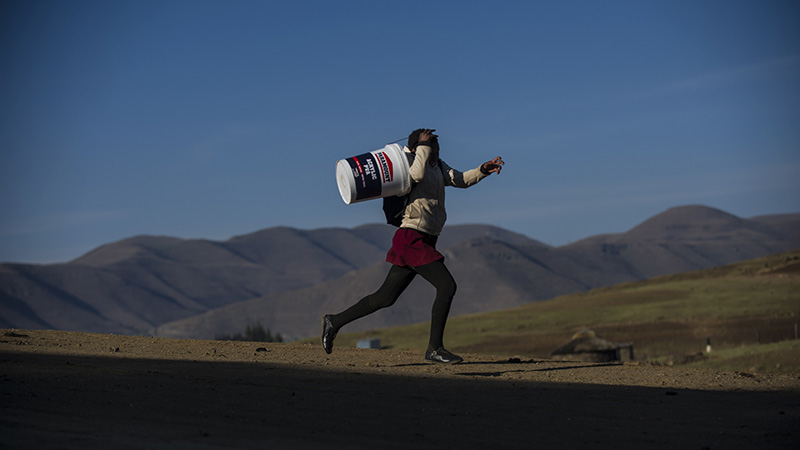Governments, civil society and faith groups must unite and condemn the US if the incoming Donald Trump administration pulls out of the Paris Agreement and stops climate funds.
That’s the view of Mary Robinson, former president of Ireland, the UN’s envoy for El Nino and La Nina and a long-term advocate of tougher climate policies.
“If the Trump administration does not live up to its Paris commitments in whatever way – by increasing emissions, looking for oil or failing to support the Green Climate Fund – it must be called out as a rogue state,” she said.
“It’s just not acceptable: countries came to an agreement in Paris. The situation of the world could be grossly worsened – the window to act is short yet the opportunities there are good.”
Weekly briefing: Sign up for your essential climate politics update
President-elect Trump has offered little detail on his plans for the Paris deal since assuming office – although on the campaign trail he said he’d “cancel” it and called climate change a hoax.
This week he nominated Exxon-Mobil CEO Rex Tillerson to be his secretary of state, Texas governor Rick Perry as energy chief and Oklahoma attorney general Scott Pruitt as head of environment.
All three have expressed doubts over climate science in the past, although Tillerson does now say he accepts the world is warming and that it poses a risk to the world.
“I just don’t know when the penny will drop in the US,” said Robinson, who predicted a “balancing corrective” among US cities and states that are still committed to reducing greenhouse gas emissions.
Why Trump presidency may not herald climate catastrophe: https://t.co/bc63lzEQDQ pic.twitter.com/3kYg1ziOuK
— Climate Home News (@ClimateHome) December 15, 2016
This week California governor Jerry Brown said the state would “launch its own damn satellites” if the federal government under Trump scrapped NASA’s climate programme.
“We’ve got the scientists, we’ve got the lawyers, and we’re ready to fight… we’re ready to defend. California is no stranger to this fight,” he said at the American Geophysical Union Conference in San Francisco.
Robinson did express confidence in the incoming UN secretary general Antonio Guterres, a former Portugal prime minister and UN humanitarian chief who she regards as a good friend.
“I believe he is coming into a difficult situation but he’s the best,” she said.
The pair are scheduled to speak next week, when Robinson said she will outline a “blueprint” she has worked on with Kenya’s ambassador to the UN and fellow El Nino envoy Macharia Kamau.
By April 2017 the pair hope to present a plan to countries at risk of the El Nino and La Nina weather events which they hope will reduce the damage inflicted on countries in their path.
Report: Africa drought drives sexual abuse, hits HIV treatment
El Nino and La Nina occur back-to-back every 5-7 years, and radically impact rainfall and global heat levels in Africa, Asia and Latin America.
Scientists say the impacts of this year’s El Nino were boosted by climate change, exacerbating droughts across much of eastern and southern Africa, wiping out crops and leaving millions at risk of extreme hunger.
“In future there should not be a crisis,” said Robinson, who said the UN estimates 60 million people have been adversely impacted by El Nino’s impacts.
“Countries know this will hit every 3-7 years and while the scientists don’t know what the precise impacts will be we know it’s layered on top of climate change.”
So far the UN envoys have visited 8 countries at most risk from current and future impacts to devise a strategy and a set of recommendations.
These will involve better early warning systems, investments in climate smart agriculture, food and nutrition security – but will likely require additional funding from donors at a time when some are signalling they want to cut overseas development aid.
“It is a concern, the budget has not been increasing in real terms. Till now the UK has given leadership and the US has done more than previous administrations,” she said.
“If that doesn’t continue it will be quite serious, and we’ll need to press ahead with smarter ways of acting as the money won’t be there.”
